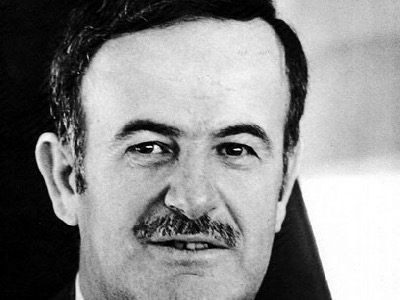
In light of the messages conveyed on behalf of Syria by the President of the ArabRepublic of Egypt, H.E.Mr. Hosni Mubarak and by the Iranian Foreign Minister H.E.Mr. Kamal Kharrazi on behalf of the Iranian President H.E.Mr. Seyid Mohammed Khatemi and by the Foreign Minister of the Arab Republic of Egypt H.E. Mr. Amr Moussa, the Turkish and Syrian delegations whose names are in the attached list (annex 1) have met in Adana on 19 and 20 October 1998 to discuss the issue ofcooperation in combating terrorism.
In the meeting the Turkish side repeated the Turkish demands presented to the Egyptian President (annex 2) to eliminate the current tension in their relations.Furthermore, the Turkish side brought to the attention of the Syrian side the reply that was received from Syria through the Arab Republic of Egypt, which entails thefollowing commitments:
1. As of now, Öcalan is not in Syria and he definitely will not be allowed to enter Syria.
2. PKK elements abroad will not be permitted to enter Syria.
3. As of now PKK camps are not operational and definitely will not be allowed to become active.
4. Many PKK members have been arrested and have been taken to court. Their lists have been prepared. Syria presented these lists to the Turkish side. The Syrian side has confirmed the above mentioned points. Furthermore, the sides also have agreed on the following points:
– a) Syria, on the basis of the principle of reciprocity, will not permit any activity which emanates from its territory aimed at jeopardizing the security and stability of Turkey.Syria will not allow the supply of weapons, logistic material, financial support to and propaganda activities of the PKK on its territory.
– b) Syria has recognized that the PKK is a terrorist organization. Syria has, alongside other terrorist organizations, prohibited all activities of the PKK and its affiliated organizations on its territory.
– c) Syria will not allow the PKK to establish camps and other facilities for training and shelter or to have commercial activities on its territory.
– d) Syria will not allow PKK members to use its country for transit to third countries.
– e) Syria will take all necessary measures to prevent the chieftain of the PKK terrorist organization from entering into Syrian territory and will instruct its authorities at border points to that effect.
Both sides have agreed to establish certain mechanisms for the effective and transparent implementation of the measures mentioned above.
In this context;
– a) A direct phone link will immediately be established and operated between the high level security authorities of the two countries.
– b) The Sides will appoint two special representatives each to their diplomatic missions and these officials will be presented to the authorities of the host-country by the heads of mission.
– c) The Turkish side, within the context of combating terrorism, has proposed to the Syrian side to establish a system that will enable the monitoring of security enhancing measures and their effectiveness. The Syrian side has stated that it will present this proposal to its authorities for approval and will reply as soon as possible.
– d) The Turkish and Syrian sides, contingent upon obtaining Lebanon’s consent, have agreed to take up the issue of the combat against PKK terrorism in a tripartite framework.
– e) The Syrian side commits itself to take the necessary measures for the implementation of the points mentioned in this "Minutes" and for the achievement of concrete results.
Adana, October 20, 1998
For the Turkish Delegation: Ambassador Uğur Ziyal, Ministry of Foreign Affairs Deputy Under-Secretary
For the Syrian Delegation: Ambassador Major General Adnan Badr Al-Hassan, Deputy Under-Head of Political Security Affairs
Annex: 2
TURKEY’S SPECIFIC DEMANDS FROM SYRIA
In order to normalize our relations, we expect Syria to comply with the basic norms and principles of international relations. In this regard, the following specific demands should be met:
– Given the fact that Turkish-Syrian relations were seriously damaged by Syrian support for terrorism, we want Syria to accept formally its obligations and renounce its previous stand on this matter. These obligations should include a formal commitment not to give terrorists support, sanctuary, and financial assistance. Syria should also prosecute PKK perpetrators and extradite to Turkey the chief of the PKK, Abdullah Öcalan, and his collaborators.
Within this framework, Syria should not:
– Permit camps for terrorist training to operate in territories under its control,
– Provide weapons, logistic materials to the PKK,
– Provide fraud identification documents to PKK members,
– Help terrorists for their legal passage and infiltration into Turkey,
– Permit the propaganda activities of the terrorist organization,
– Allow the PKK to operate in accommodations in its territory,
– Facilitate the passages of terrorists from the third countries (Europe, Greece,Southern Cyprus, Iran, Libya, and Armenia) to northern Iraq and Turkey.
– Cooperation in all activities aimed at fighting terrorism.
– Refrainment from inciting other countries which are members of the Arab League against Turkey.
– In the light of the above, unless Syria rescinds from these acts immediately, with allthe consequences, Turkey reserves the right to exercise her inherent right of self defenseand under all circumstances to demand just compensation for the loss of lifeand property. Indeed, these views were transmitted to Syria through diplomatic channels on 23 January 1996.
However, our warnings have fallen on deaf ears.
Annex: 3
As of now, the two sides agree that their border disputes are ended, and that none ofthem has any claims or rights accrued in the territory of the other side.
Annex: 4
The Syrian side understands that its failure to take the necessary measures and security duties, stated in this agreement, gives Turkey the right to take all necessary security measures within 5 km deep into Syrian territory.

















Stay In Touch
Follow us on social networks
Subscribe to weekly newsletter